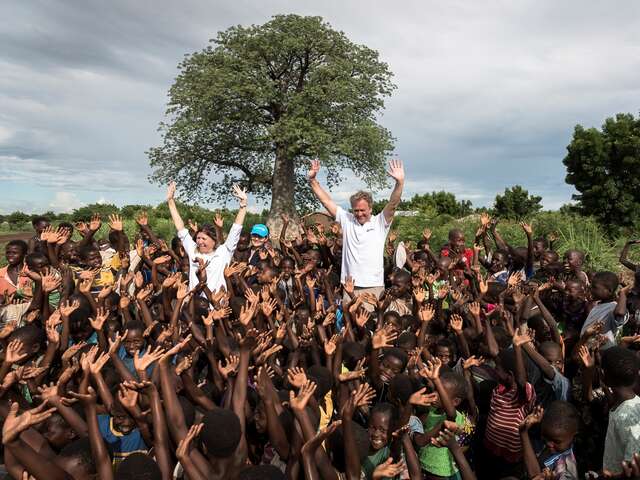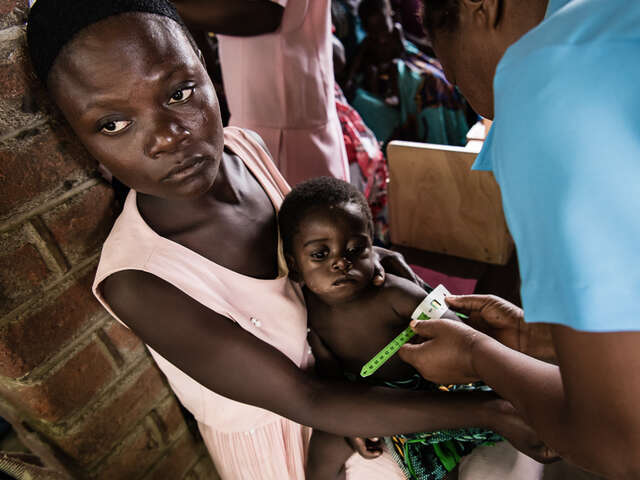MSC Cruises, UNICEF Partnership Feeds 67,000 Needy Children and Their Families
Posted on 04/08/2017 | About Africa
We're already pretty passionate about travel. Then when the company we trust with our valuable vacation time and budget makes the effort to do good in our shared world, well, that makes us love travel even more.
European cruise line MSC Cruises has recently reached an incredible milestone for its partnership with UNICEF, raising €6.5 million (that's about $6.9 million USD) through guest donations onboard to support UNICEF.
Those funds have been put to good use. More than 2 million sachets of Ready to Use Therapeutic Food (RUTF) have been delivered to children in Ethiopia, Sudan, Somalia and Malawi. That translates into helping 67,000 malnourished children and their families since 2014. In addition, MSC has recently delivered 22,000 essential supplies to relief efforts in Malawi.
Focus on Children and Families
MSC Cruises is a family-run company, so, according to executive chairman Pierfrancesco Vago, the UNICEF focus on the wellbeing of children and their families, and the ability to provide life-saving and life-changing food to children around the world where and when it's most needed, strikes a chord.

If you've sailed on MSC Cruises, you may have seen their 'Get on Board for Children' fund-raising initiative. MSC Cruises and UNICEF have worked in partnership since 2009 and together established the global initiative to assist malnourished children in developing countries and those affected by crises.
Through encouraging MSC Cruises’ guests fleet wide to make contributions to UNICEF, more than 6,300 children have been treated in Somalia, over 9,400 in both South Sudan and Ethiopia and, most recently, over 41,500 in Malawi. With multiple challenges such as food shortages, flooding, stagnant economies and prolonged droughts, the need for food aid in these countries is enormous, especially for children.
Nutrition plus Supplies for Malawi's Crisis
In Malawi, 54,053 cases of severe acute malnutrition have been recorded this year. As the only corporate partner in the country, MSC Cruises has worked tirelessly to support the area, helping UNICEF to reach over 40% of Malawi’s severely malnourished children.

The generosity of MSC Cruises' guests has been magnified by an additional donation of more than 22,000 essential items delivered directly to Malawi, one of the poorest regions served by the relief effort. In recent years, the country has been devastated by drought, then flooding that has wiped out farms and homes. Over 6 million people, half of them children, are in grave danger of survival.
Executive chairman Vago visited Malawi earlier this year and says he returned even more committed to helping UNICEF's programs in the country.
An MSC cargo ship arrives in Malawi this month with essential goods including mattresses and bed sheets, bicycles, cooking pots, bowls and spoons, and farming tools as well as chalkboards, school pencils, drawing books, toys and puppets for the children.
Participate in the UNICEF Program on Board Ships
MSC Cruises’ guests onboard have the opportunity to learn about and participate in the MSC/ UNICEF program. There are “edutainment” activities for children and their parents. Each week, cruise ship programs include activities like a dedicated UNICEF Day with fun games and a children’s parade, where participating kids receive a leaflet to teach them about malnutrition around the world. They also receive a UNICEF World Citizen passport that is stamped after each educational activity is completed, making them an ambassador for the rights of children across the globe.
So thank you to all the guests and fans of MSC Cruises who have participated in the UNICEF programs, and to MSC for giving guests onboard such a meaningful way to spread their own commitment to families to other families in our shared world.
Travel can do great things, and we love to share success stories like this.
Copyright BestTrip.TV/Influence Entertainment Group Inc or Rights Holder. All rights reserved. You are welcome to share this material from this page, but it may not be published, broadcast, rewritten or redistributed.





